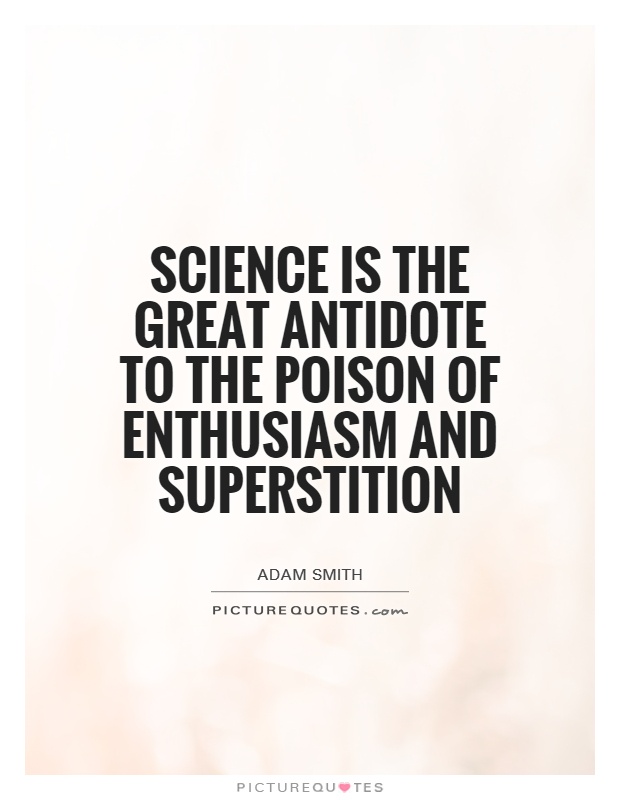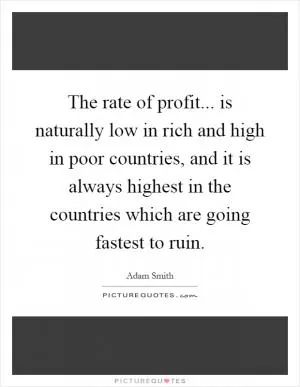Science is the great antidote to the poison of enthusiasm and superstition

Science QuotesFunny Science QuotesFamous Science QuotesSuperstition QuotesThe Great QuotesAdam Smith Quotes
Science is the great antidote to the poison of enthusiasm and superstition
Adam Smith, often referred to as the father of modern economics, was a firm believer in the power of science to combat the harmful effects of enthusiasm and superstition. In his seminal work, "The Wealth of Nations," Smith argued that rational inquiry and empirical evidence were essential tools for understanding the complexities of the economy and society as a whole. He believed that by applying the principles of science to the study of human behavior and economic systems, we could uncover the underlying laws that govern our world and make informed decisions based on objective facts rather than irrational beliefs.Smith's emphasis on the importance of science in combating enthusiasm and superstition can be seen in his critique of mercantilism, the prevailing economic theory of his time. Mercantilists believed that a nation's wealth was measured by the amount of gold and silver it possessed, leading to policies that focused on accumulating precious metals through trade restrictions and tariffs. Smith, however, argued that wealth should be measured by the productivity and efficiency of a nation's economy, rather than the amount of precious metals it held. By applying scientific principles such as the division of labor and the invisible hand of the market, Smith demonstrated how free markets and competition could lead to greater prosperity for all members of society.
Furthermore, Smith's emphasis on the importance of reason and evidence in economic decision-making can be seen in his famous concept of the "invisible hand." According to Smith, individuals pursuing their own self-interest in a competitive market would unintentionally promote the greater good of society as a whole. This idea was a direct challenge to the prevailing superstitions of his time, which often held that economic outcomes were determined by divine providence or the whims of powerful rulers.












 Friendship Quotes
Friendship Quotes Love Quotes
Love Quotes Life Quotes
Life Quotes Funny Quotes
Funny Quotes Motivational Quotes
Motivational Quotes Inspirational Quotes
Inspirational Quotes